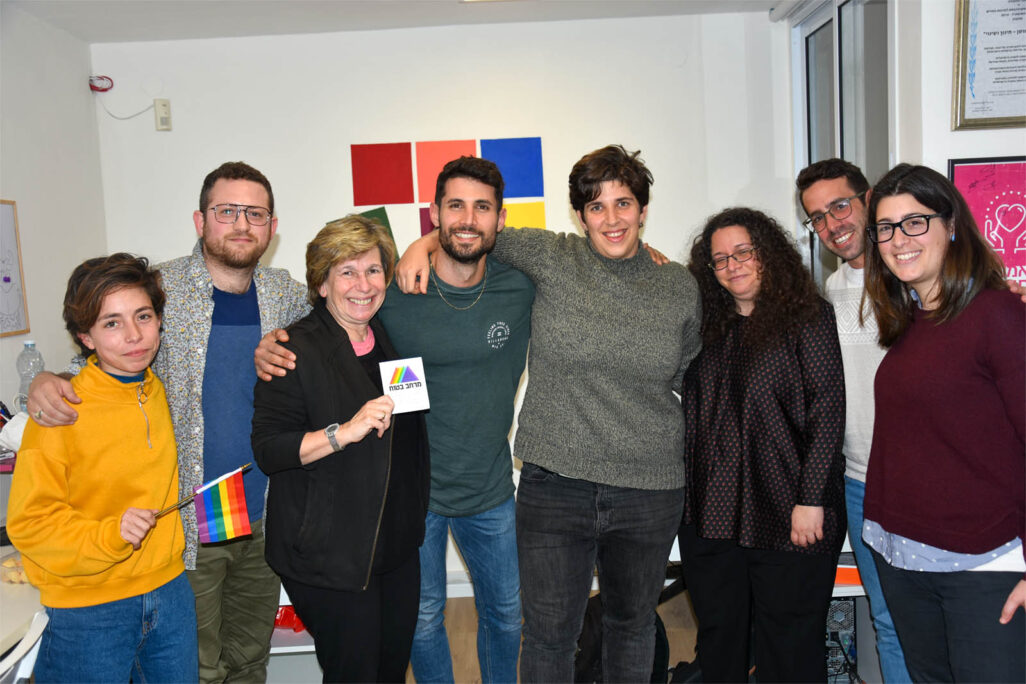
Randi Weingarten, president of the American Federation of Teachers which represents over 2 million teachers and nurses, is a true revolutionary. During her last visit to Israel this month, she met and spoke with members of two LGBT teacher groups, in what she calls "an attempt to strengthen them in the face of Minister of Education's inflammatory remarks and discrimination against LGBT students." After 40 years of involvement in teachers’ union struggles across the United States, Weingarten has plenty of experience, and is attempting to merge Judaism, unionism and the LGBT community.
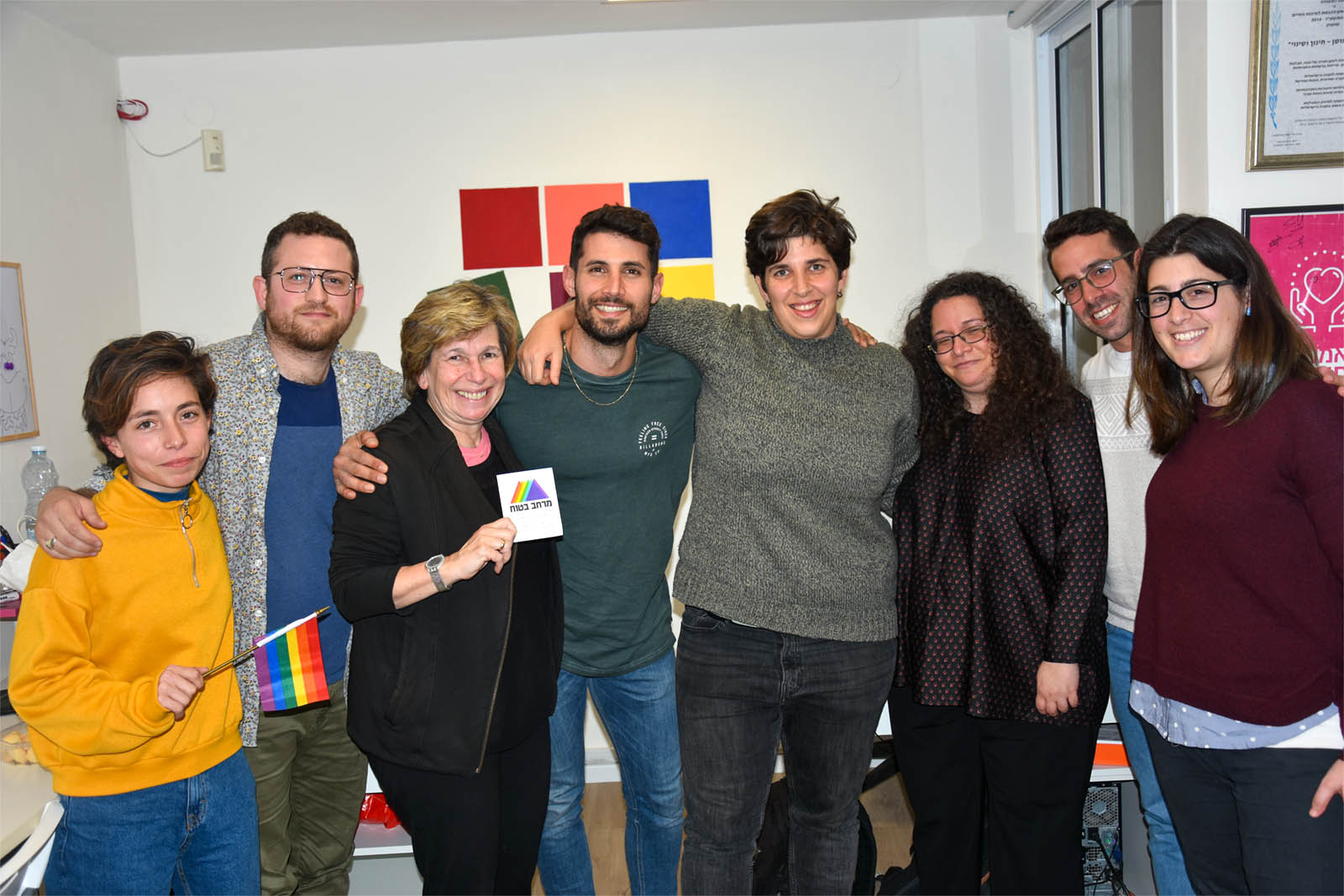
Unions and LGBT rights
Before becoming a teacher, Weingarten worked as an attorney, representing New York teachers unions. She learned about social activism from an early age – her mother was also a teacher, and participated in a seven week strike for pay rises when Weingarten was a teenager. After several years as an attorney, Weingarten chose teaching as a way to bring about social change, teaching sociology at a Crown Heights high school.
"Before me it was Sandra Feldman as president of the United Federation of Teachers. During her time as chair there was a famous case where a school tried to fire one of the teachers because of his sexual preferences," said Weingarten. "I was there when Sandra said, in front of the cameras, that if this teacher would be fired and denied his civil rights, that school would have to deal with the entire UFT. If you think I'm fearless you should have seen her. They gave in eventually. After that we added to all teachers contracts a clause that forbids schools from firing teachers because of their sexuality, together with all other forms of discrimination."
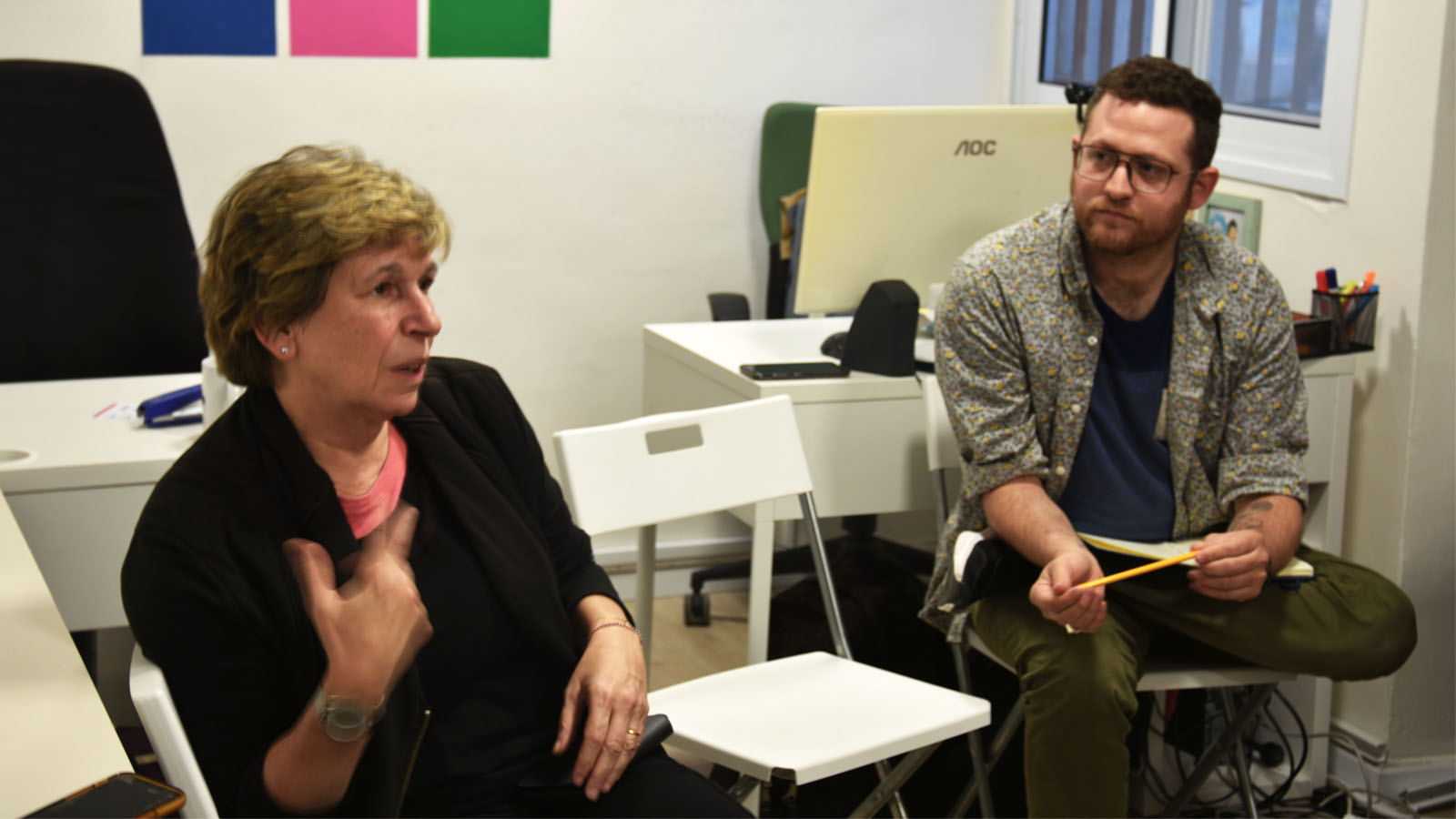
The two Israeli teachers' groups meeting with Weingarten are Megama and Hoshen. Megama is a relatively new LGBT group, organizing LGBT Teachers in the Education System. Hoshen is one of the main LGBT organizations working to raise awareness and acceptance through education. They also run programs in classrooms and with school staff. Both groups work with LGBT teachers in an attempt to offer safe spaces to share experiences at work, and to organize public awareness and student campaigns.
Megama is a relatively young group, and has been involved in campaigning for LGBT teachers' rights since 2018. The organization was formed by Chen Amiram, 29, a young Jewish studies teacher who teaches in a school in Lod. Amiram decided to create a platform for LGBT teachers to organize and discuss their experiences working in the education system. "One of the main things that this group has allowed is for more and more teachers to come out in front of their students," she told Weingarten excitedly. "I couldn't come out at work if it wasn't for this group."
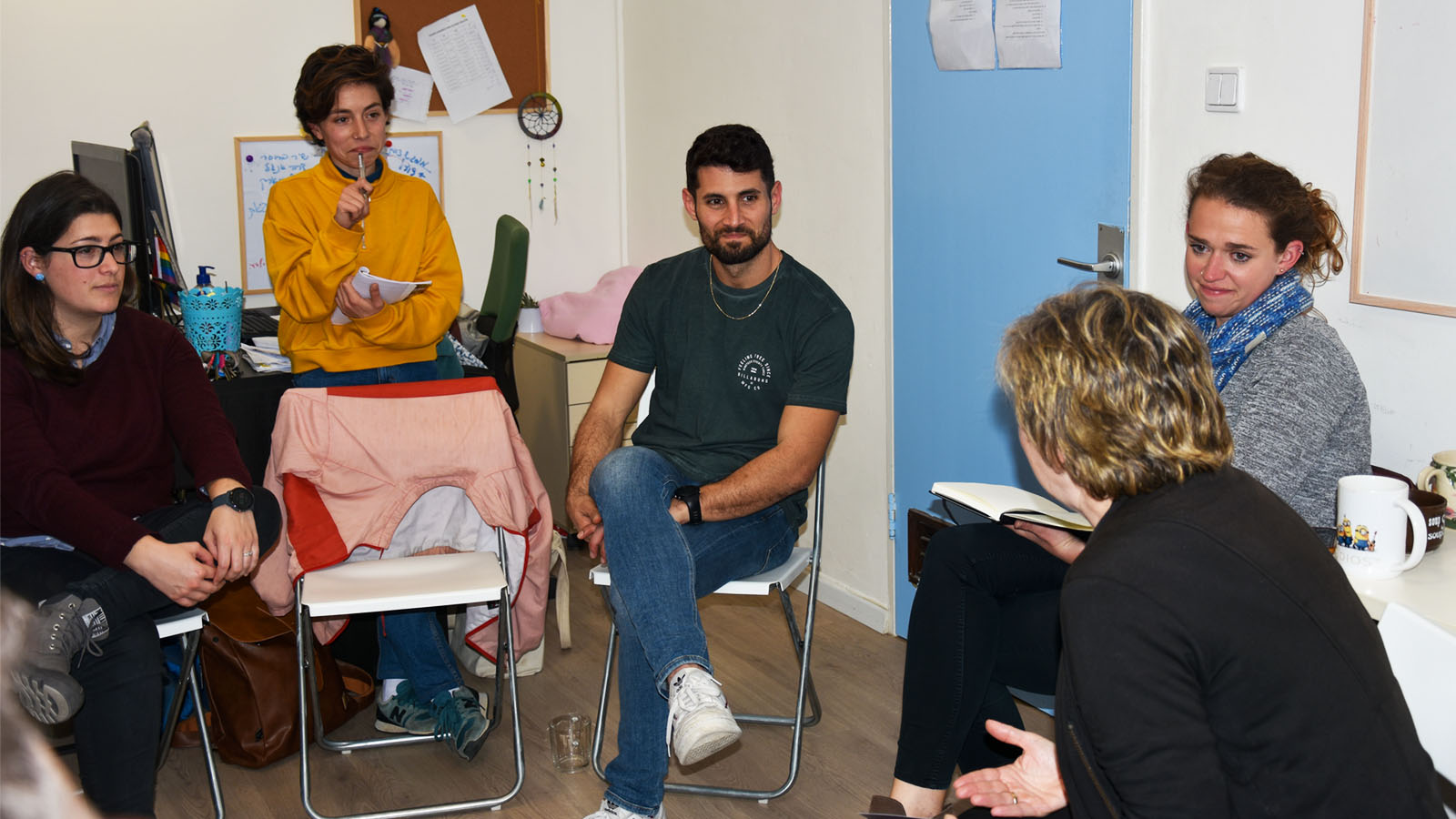
The question is whether, as a teacher, you have control over the means of production, and not just over your salary."
Weingarten insisted that the two groups, which focus mainly on educational activities in schools, are missing out on a vital aspect of teachers' organizations – an affiliation with labor unions. Currently neither group is affiliated with a labor union, and Weingarten urged them to officially join one of the unions. "This used to be our situation too," said Weingarten in reference to LGBT teacher groups in America that have since incorporated their work into the union movement.
"For many years the labor movement in the US only considered the categories of 'fair working conditions' as salary, pension, retirement and redundancy," said Weingarten. "But work is more than that. As a teacher, it's also about what you teach, and how you teach. The way we see our union is that the community is part of our responsibility. We have a saying in our union: 'The teachers and their union want what their students need'. So the union sees itself as responsible for more than just the salaries, but also for the curriculum and the ways in which it is taught. The question is whether, as a teacher, you have control over the means of production, and not just over your salary."
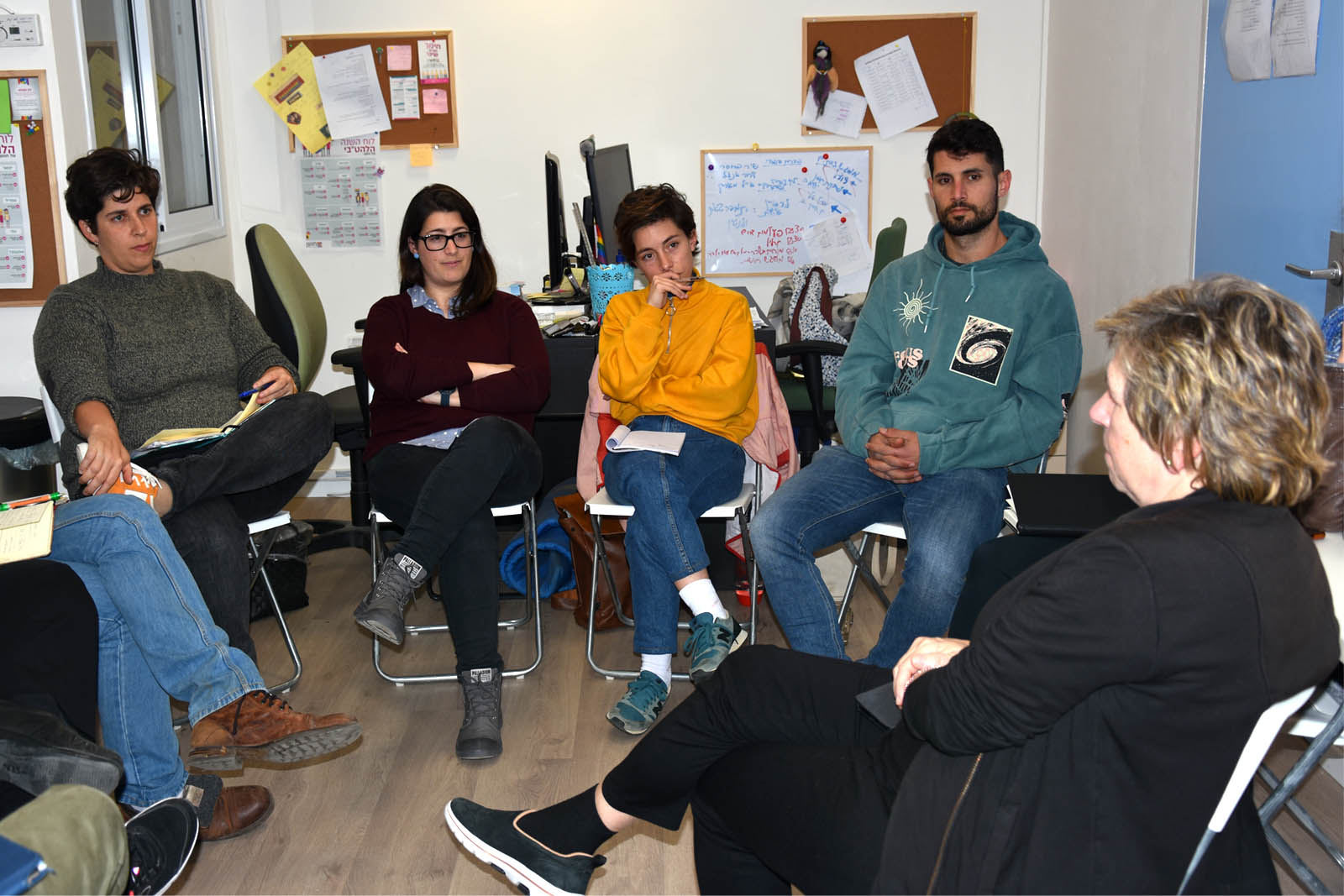
Unions, LGBT rights, and Judaism
Weingarten emphasized the importance of unions in creating safe spaces at school, both for teachers and students. "Public schools have to be a safe space for every teacher and student, regardless of religion, nationality, gender and sexual orientation. You need straight allies, and we, a two-million-member organization, want to be your allies."
Weingarten shared her experiences as a lesbian teenager, growing up in New York in the sixties. As a young woman she was openly out, and had to face abuse due to her choices – once even being threatened with blackmail while representing a New York teachers' union. She came out publicly only in 2006, years after she was established as a well-known public figure, when she married Rabbi Sharon Kleinbaum, of Beit Smachot Torah community in New York.
"In 2006 Sharon asked me to speak in front of the Synagogue community, as a representative of the LGBT community," she told the group. "By then I was well known as a lesbian in New York, but I'd never publicly come out, and I used that opportunity to take that step. After my speech at the synagogue three teenagers approached me and thanked me. I realized how much influence, even in America, this sort of public coming out has – especially on teenagers who are desperately looking for role models."






